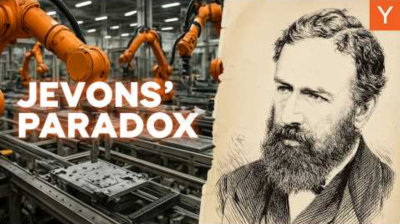The Jevons’ Paradox – Will This Apply To AI?
Will AI Make Everyone Redundant?
The amount of money being ploughed into AI is astonishing hundreds of billions of pounds / dollars per year. The outputs from all this investment is not that clear.
Perplexity is a new browser which enables you to type questions and get answers. I have quickly become a fan. This is what has driven Google to adopt the same approach. Perplexity is an AI powered browser.
Looking back – take the Downton Abbey view of the world, around 1.5 million people were employed as domestic servants in the UK in 1900, according to census and historical research. This comprised a significant portion of the workforce, with domestic service being the nation’s largest single employment sector for women at the time. Most domestic servants lived in the households where they worked and included roles like maids, cooks, butlers, gardeners, nurses, and governesses. Today that number is estimated to be less than 20,000 and most of those are migrants to the UK.
Cars replaced horses and because they are effectively much cheaper, most households today can afford their own car. It is highly unlikely if the car had not come along those households would have a horse and carriage.
My expectation is that as jobs are replaced by AI that many more jobs will appear which cannot be imagined today. Only those not willing to work will be unemployed which is effectively the status quo today.
Published in 1865 The Jevons’ Paradox
This is not a new idea. The Jevons paradox is an important concept in economics and resource management, describing the counterintuitive phenomenon where increasing the efficiency of using a resource—such as energy—leads to greater overall consumption of that resource rather than a reduction as commonly expected.
Batteries are rapidly moving from something you had in a watch / calculator / laptop now car. In 30-years time ICE vehicles will seem like steam engines today.
William Stanley Jevons first identified this effect in his 1865 book “The Coal Question.” Jevons observed that more efficient steam engines led not to a decrease, but to an increase in coal consumption, because efficiency made coal use cheaper, spurring greater adoption across industries. He famously stated: “It is a confusion of ideas to suppose that the economical use of fuel is equivalent to diminished consumption. The very contrary is the truth.” – Wikipedia.
I frequently find ideas bouncing around in my mind are not new, I just cannot express them as eloquently as others. This is just one more example.


